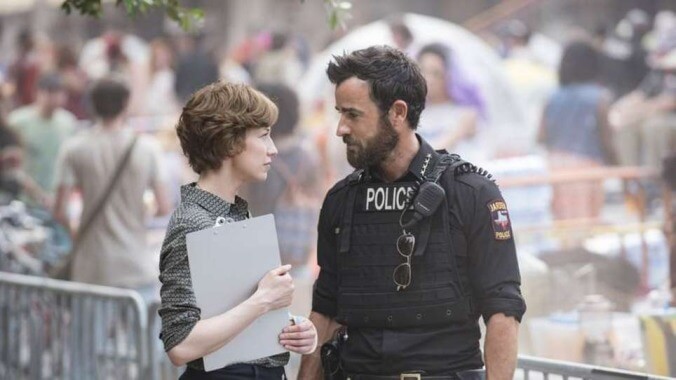The Leftovers’ creators know the show feels different after Covid
In light of the last four years, the HBO series from Damon Lindelof and Tom Perrotta feels eerily prescient
Photo: Van Redin
Watching The Leftovers for the first time post-2020 (as this writer did) feels almost like experiencing the vision of a time traveler. The beloved HBO series, which celebrates its 10th birthday this year, ran from 2014 through 2017, but you’d be forgiven for assuming it started far later, based on its eerily prescient mass extinction event and entirely unique vision of the the ways society would mourn—or stubbornly refuse to—in the aftermath. The three-season show from Lost creator Damon Lindelof and original novel writer Tom Perrotta follows global society in the hours, months, and decades following an unexplained, rapture-type event called the “Sudden Departure,” in which 2% of the world’s population suddenly and inexplicably vanish.
Even though the real-life pandemic was obviously far less supernatural than the one dreamed up in The Leftovers, society’s response was nearly the same. Anyone who’s watched the show will know what that means: our world—along with the characters’—didn’t actually change much at all even though, fundamentally, nothing will ever be the same. Perrotta summed up this philosophy in a recent New York Times retrospective, in which he spoke about setting out to “do the least apocalyptic postapocalyptic story you could tell.” He explained his vision as follows: “Civilization seems to be intact, but something essential has been undermined, and people are in a state of profound bewilderment rather than struggling for survival.” Sound familiar?
In the interview—which also included Lindelof—the two men finally, explicitly reflected on their work in the context of what was to come, a comparison that has been made time and time (and time) again. “When the pandemic happened, I definitely spoke to people who felt like The Leftovers had … ‘predicted’ isn’t the right word, but that it had described something similar,” Perotta said.
He continued: “If you think about the 20th century, the Holocaust happens, and it’s horror beyond imagining. But just a few years later, the world is dancing to Elvis. The weird part is not how much we suffer—because we do—but how quickly we forget it, or live with it. I think there’s something about the scale of The Leftovers that’s truer to the cataclysms that we lived through.”
“The one inevitability of all of our lives is that we’re going to lose someone that we care about deeply. And there’s just not enough art out there that says, ‘This is going to happen to you. And when it does, you can come here and not feel like a crazy person,’” Lindelof added, neatly summarizing why the experience of watching something as pointedly painful as this—or, say, Station Eleven—can actually feel so cathartic in times of crisis or mourning. “It’s amazing to me how hard it is to make a list of the things in pop culture that deal with grief,” he added. “It tracks, because that’s not exactly going to get people in the tents: ‘Hey, you want to see a show about the worst feeling you’ll ever feel, and can’t avoid?’”
While this isn’t the tagline we’d go with, The A.V. Club has recommended The Leftovers again and again. To hear Lindelof tell it, that was always going to be this series’ fate. “I know this sounds borderline religious and cosmic, but the show develops a consciousness of its own,” he said. “And it will reject bad ideas that are outside the framework of what the show wants to be.”